World
The modern world cannot be studied without examining the course, impact and legacy of two world wars, the resources in this section set out to look at both the First and Second World Wars in their global context. The section also includes the Cold War and its impact in Latin America, South-East Asia and parts of Africa. This period also sees the rise and fall of European imperialism and the changing nature of global politics and economics as technology brings different stories from so many parts of the world directly to us. Read more
Sort by:
Date (Newest first) | Title A-Z
Show:
All |
Articles |
Podcasts |
Multipage Articles
-

Film: China's Good War
ArticleClick to view -

Film: Discussion: Historical memory of key individuals in the Civil Rights Movement
ArticleClick to view -
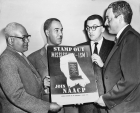
Film: Discussion: Key organisations in the Civil Rights Movement
ArticleClick to view -

Film: Discussion: The post Civil Rights era
ArticleClick to view -
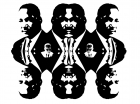
Film: Discussion: The significance of individuals, presidents and communities to the Civil Rights Movement
ArticleClick to view -

Film: Discussion: The significance of the federal government to the Civil Rights Movement
ArticleClick to view -

Film: Discussion: What global events influenced the Civil Rights Movement?
ArticleClick to view -

Film: From Khrushchev to Brezhnev
ArticleClick to view -

Film: Gorbachev - Domestic Reform
ArticleClick to view -

Film: Gorbachev - Downfall
ArticleClick to view -

Film: Gorbachev - Early life and influences
ArticleClick to view -

Film: Gorbachev - Foreign Relations
ArticleClick to view -

Film: Gorbachev - Interpretations
ArticleClick to view -

Film: Key individuals in the African-American Civil Rights Movement
ArticleClick to view -

Film: Khrushchev - Background
ArticleClick to view -

Film: Lenin and the 1917 Revolutions
ArticleClick to view -
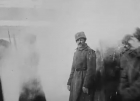
Film: Lenin and the Russian Civil War
ArticleClick to view -
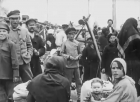
Film: Lenin and the birth of Soviet Russia
ArticleClick to view -

Film: Lenin's early thought
ArticleClick to view -
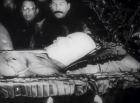
Film: Lenin's legacy
ArticleClick to view

